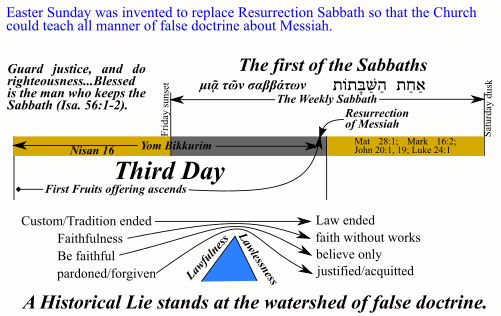Alex Tennent
For my yoke is easy, and my burden is light.
The bread used in Eastern Orthodoxy is called Artos. It is leavened. Rome used it also until it switched to unleavened at some point.
I agree Yeshua HaDerekh, and its interesting how that history played out, and how few know what really happened there.
Although Rome believed the Last Supper was the Passover they continued with their Communion ritual using regular daily leavened bread for hundreds of years, as they were not concerned with the Jewish details on what would have actually been used, had the last supper been a Passover. But around 900ad the Roman Catholic leaders started really pushing their Transubstantiation (where the ritual bread turns to Christ's human flesh in their belief). So their rulers decided at that time that since they were eating his flesh, and since he was sinless, that they should change to unleavened bread. This was decreed throughout the land, but the Eastern churches refused to go along (the Eastern churches were in a sense those who were left of those that were the original Fourteenthers). There are some very interesting quotes from that battle between the east and western church, which I have in the final chapter of my book, linked below. Then when the Protestant churches left Rome (since they had grown up in Roman churches) they continued with the Roman unleavened bread Communion ritual, but they knew something was wrong with the Transubstantiation, so they dropped that part in stages. It has always interested me that most Messianic believers, many of whom came out of the above two groups initially, did not follow the Communion ritual. Down deep in their own self they knew something was wrong with it and wanted no part of it. But they only had the English translations which seem to make it obvious that the last supper was the Passover, so they felt a Passover seder with unleavened breadwas the way to harmonize that, and to follow what the Messiah said in a way that seemed true to the Jewish history. But I believe this misses the fact that the Messiah held a regualr bread, and was not teaching a new seder but was teaching spiritual truth in parables as he so often did (see chapter two of my book in my earlier post). And here below is that final chapter of my book for anyone interested in the history that Roman Eastern churches split, and whether the Messiah was really teaching a new ritual at this meal. The second half of the chapter details those quotes from Rome against the Eastern churches, and that history etc: http://themessianicfeast.com/wp-content/uploads/2015/01/TMF_The-Ritual.pdf
Upvote
0



